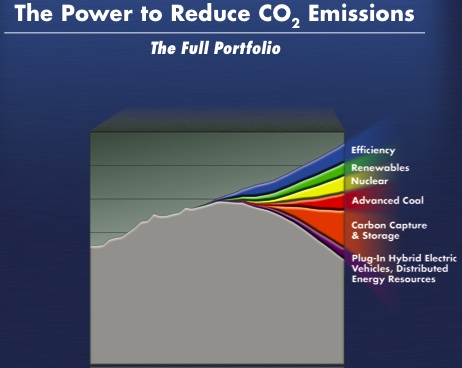
The Electric Power Research Institute (EPRI) has released a study that shows that "the aggressive development and implementation of a full portfolio of advanced electricity technologies could reduce the economic cost of cutting future U.S. CO2 emissions by more than 50 per cent while meeting the continuing growth in demand for electricity." All this, and they haven't even accounted for the economic loss that would result from the "do nothing" alternative.
"Previous EPRI work has shown that absent investments in advanced technologies, significant reductions in future emissions of CO2 and other greenhouse gases will result in higher prices for electricity and natural gas, and reduced economic growth."
"However, by developing and deploying advanced electricity technologies, such as a "smart" electricity grid, plug-in hybrid vehicles, new advanced nuclear reactors, and clean coal technologies with carbon capture and storage, this EPRI study shows that the same cuts in future U.S. CO2 emissions could be accomplished at much lower cost, saving as much as $1 trillion in future U.S. economic growth under some scenarios analyzed." Via::Power Engineering Image credit:: EPRI report cover excerpt. TreeHugger comment after the fold.
"EPRI's members represent over 90% of the electricity generated in the United States"
This report seems to be nothing but a grasp by todays energy producers to hold onto their power. Note the massive reliance on "clean" coal and nuclear. This report shows almost no reduction in reliance on those two sources, and only a 5% reduction in coal, with a 10% INCREASE in nuclear generation.
I support nuclear as a necessary tool to get off coal, not as a replacement for renewables, energy efficiency (other reports have shown MUCH higher potential), and low CO2 natural gas. Infact, the only this this does is cut natural gas use, and use fictional CCS. CCS has never been proved to work in the capture OR the storage.
=== author's response follows ====
Thanks for the insightful comment. At least they've gotten off the "it will destroy our economy" bandwagon, which makes it that much harder for dip stick politicians to throw that talking point around.
Would you mind linking us to a few of the studies you that offer different scenarios?